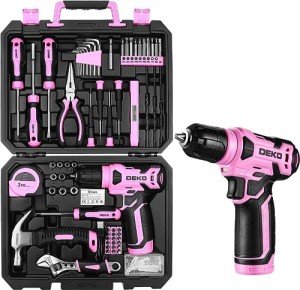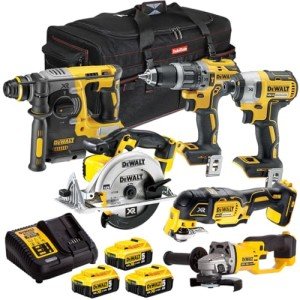What’s The Current Job Market For Build Your Own Tool Kit Professionals?
Build Your Own Tool Kit: A Comprehensive Guide
Building your own tool kit is an important undertaking for any DIY lover, house owner, or hobbyist. Having an efficient and comprehensive tool kit not just allows you to tackle numerous projects efficiently however likewise saves you money and time in the long run. This guide will explore how to build your own tool kit, what tools to include, and address some regularly asked concerns.
Why Build Your Own Tool Kit?
Developing your own tool kit offers numerous advantages:
- Personalization: You can customize your toolkit to meet your particular needs and jobs.
- Quality assurance: You can pick the tools based on individual choice for quality and toughness.
- Expense Effectiveness: You can prevent acquiring unneeded tools and focus on what you need.
- Learning Experience: Building your own toolkit is an educational experience that boosts your understanding of your tools.
Important Tools for Your Tool Kit
Creating a tool kit can seem daunting, particularly with the variety of tools available. Below is a categorized list of important tools, from hand tools to Power Tool Kit Builder tools, to assist you get started:
| Category | Tools | Function |
|---|---|---|
| Hand Tools | Screwdrivers (various sizes) | Tightening and loosening screws |
| Hammers (claw and rubber) | Driving and getting rid of nails | |
| Pliers (needle-nose, slip-joint) | Gripping, twisting, and cutting | |
| Wrenches (adjustable and socket) | Tightening or loosening bolts | |
| Tape Measure | Measuring length | |
| Cutting Tools | Utility Knife | Cutting different products |
| Handsaw | Cutting wood | |
| Power Tool Sets Tools | Cordless Power Tool Sets Sale Drill | Drilling holes and driving screws |
| Circular Saw | Cutting big sheets of material | |
| Fasteners | Nails, Screws, and Anchors | Protecting materials |
| Wood Glue | Bonding wood pieces together | |
| Security Gear | Safety Glasses | Protecting eyes |
| Work Gloves | Protecting hands | |
| Ear Protection | Minimizing noise direct exposure | |
| Organizational | Tool Box or Bag | Keeping tools arranged |
| Labeling Supplies | Easy identification of tools |
Producing Your Tool Kit: Step-by-Step
-
Determine Your Needs: Determine what jobs you prepare to undertake. Different tasks need different tools. For example, if you’re primarily working with wood, focus on wood-cutting tools.
-
Budget plan Planning: Decide how much you want to invest on your tools. Investing in quality tools is necessary, as they can last a life time.
-
Purchase Tools Gradually: Start with the most necessary tools and slowly add more specific tools as required.
-
Company: Invest in a tough tool kit or organizer. Keep regularly used tools easily accessible while saving others safely.

-
Upkeep: Regularly tidy and keep your tools to extend their life-span and guarantee they perform well.
Advantages of Different Tool Types
| Tool Bundles Type | Advantages | Drawbacks |
|---|---|---|
| Hand Tools | No need for electrical Power Tools Bundle, portable, precise | Can be labor-intensive |
| Power Tools | Conserve effort and time, increase accuracy | Needs electricity, heavier |
| Cutting Tools | Flexible and effective for various products | Requires proper handling and maintenance |
FAQ: Building Your Own Tool Kit
1. What is the minimum variety of tools I need to begin with?
A basic toolkit can begin with just 5-10 essential hand tools (e.g., a hammer, screwdrivers, pliers, a tape procedure, and an energy knife) depending upon your needs.

2. How do I select the right tools?
Think about the kinds of jobs you will undertake. Research the tools used for those jobs and evaluate the quality and brand reliability.
3. Should I purchase new or used tools?
Both options have benefit. New tools typically come with warranties, while utilized tools can be more affordable. Ensure used tools are in good condition and working well.
4. How should I maintain my tools?
Keep them clean, keep them effectively, and examine routinely for any needed repairs or replacements. Oiling and sharpening cutting tools will also boost their efficiency.
5. Can I create a tool kit on a budget?
Yes! Look for economical tools, shop throughout sales, or consider pre-owned options. Focus on the most required tools first.
Last Thoughts
Structure your own tool kit is not just a useful investment however also a rewarding experience that improves your abilities. It makes it possible for people to take on tasks with confidence and proficiency. By thoroughly picking a combination of hand tools, powered tools, cutting tools, security equipment, and organizational products, anybody can develop a customized tool kit that meets their distinct requirements.
With a well-rounded tool kit in hand, people can unlock their creativity and see their ideas come to life, task by job. Delighted structure!

